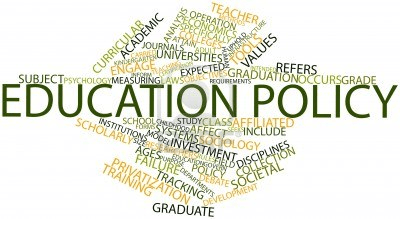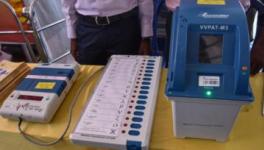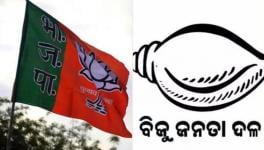New National Educational Policy Delayed for Third Time

The committee set up by the Ministry of Human Resource Developmet (MHRD) tasked with drafting the National Education Policy (NEP) has been given a third extension to submit its final report. The deadline has been shifted to August 31 2018, from the earlier deadline of 31 June, 2018. Initially it was supposed to submit its report in December 2017. It was constituted on 24 June 2017, under the chairmanship of Dr. K. Kasturirangan, with eight members.
The committee will also take “inputs” from the report of a previous drafting committee headed by former cabinet secretary TSR Subramanian, submitted on 30 April 2016. This report was criticised and condemned by concerned academics, professionals and social activists, firstly for promoting commercialisation and privatisation in the education sector, and secondly for its unscientific, Hindu chauvinist, Right-wing cultural & nationalist overtones. Subsequently, the government set this report aside and constituted the present committee.
In their 2014 election manifesto, it is mentioned that “BJP will set up a National Commission on Education to report in two years on the state of education and the reforms needed. Based on the report, BJP will implement a National Education Policy”. The next general elections are on the horizon and this promise, amongst various others, remains unfulfilled. And as it is, this government doesn’t need to formally submit a policy, nor follow established procedure, to do what it wants to be done, as shown by the experience of last 4 years.
Although a ‘policy’ is yet to be finalised by the govt., wholesale changes in the structure and orientation of India’s education system have been pushed through including proposals to abolish the UGC, and establishing a relentless drive towards handing over vast slices of education – from elementary to higher – to private sector. Aligning with global demands for opening up the education sector and trade in educational services seems to be one thrust while the saffronisation of educational curricula is the other.
Although all this activity renders the new policy largely redundant, let us ponder about what this it may look like.
So far, there has been no mention of the contents of this draft policy in the public domain, although the Ministry has said that the report has been compiled. There are fleeting, and expected, mentions by HRD Minister Prakash Javadekar and other BJP Ministers that Sanskrit, Hindi, Vedic studies and ancient knowledge-systems like Yoga and Ayurveda will receive renewed attention; that it will focus on skills education (especially marketable skills) and “world-class institutions”; and also that it will give a fillip to the farcical ‘autonomy’ being resisted by students, teachers and concerned citizens.
The actions of the Modi Regime are in-line with BJP’s 2014 Election Manifesto which stated that they “will provide autonomy with steps to ensure accountability for institutions of higher learning.” This push towards saffronisation, privatisation and commercialisation of education will most likely be carried forward by the new draft NEP also, all the while preaching inclusion and tolerance in society, expanding affordable access to the deprived sections of society and improving government education institutions.
The recent move to replace the UGC with the Higher Education Commission of India (HECI) is also as per their manifesto, which states that “UGC will be restructured and it will be transformed into a Higher Education Commission rather than just being a grant distribution agency.”
The Subramanian Committee report and the draft NEP 2016 were following the diktats of the BJP and RSS, and an indication of the contents of the upcoming draft can be provided by looking at some of the concerns raised in response to the previous draft. These will illustrate the complicity of the Subramanian Committee in accepting and promoting the wishes of BJP, RSS and Global Finance Capital.
An article by Professor Ajay S Sekher, published by Indian Cultural Forum sums up the NEP 2016 thus:
“In short, the think tanks of MHRD and the ruling Hindu Nationalist party, and the purely Brahmanical RSS ideologues are clearly behind this NEP 2016 draft. It stands for the Vedic and Varnasrama Hindu world view and the neo-liberal corporate Brahmanism. It has to be challenged, checked, and resisted in general by the secular academic community and citizens in general if we need to save the idea of a democratic and secular India.”
An article by Rohit Dhankar published in The Hindu also ends with a paragraph heavily criticising the Subramanian Committee Report and the Draft NEP 2016. It reads as follows:
“In conclusion, one can say that it is a policy to gear education to producing pliable citizens who work as the government says, believe it, obey it, produce but do not think and do not question. It is a policy to craft an education system that is to dumb down the citizenry. It is time for India again to remember that a just and functioning democracy squarely depends on citizens who can think clearly and critically, and who can act on their convictions in the face of risks. Democracies are not sustained by obedient productive units in so-called knowledge-based economies. However, that is precisely what our new NEP 2016 envisages.”
It can be expected that these concerns will most likely not be addressed in the new policy as well. The contours of the new policy will continue to promote privatisation, commercialisation and saffronisation of the Indian education system.
Get the latest reports & analysis with people's perspective on Protests, movements & deep analytical videos, discussions of the current affairs in your Telegram app. Subscribe to NewsClick's Telegram channel & get Real-Time updates on stories, as they get published on our website.
























